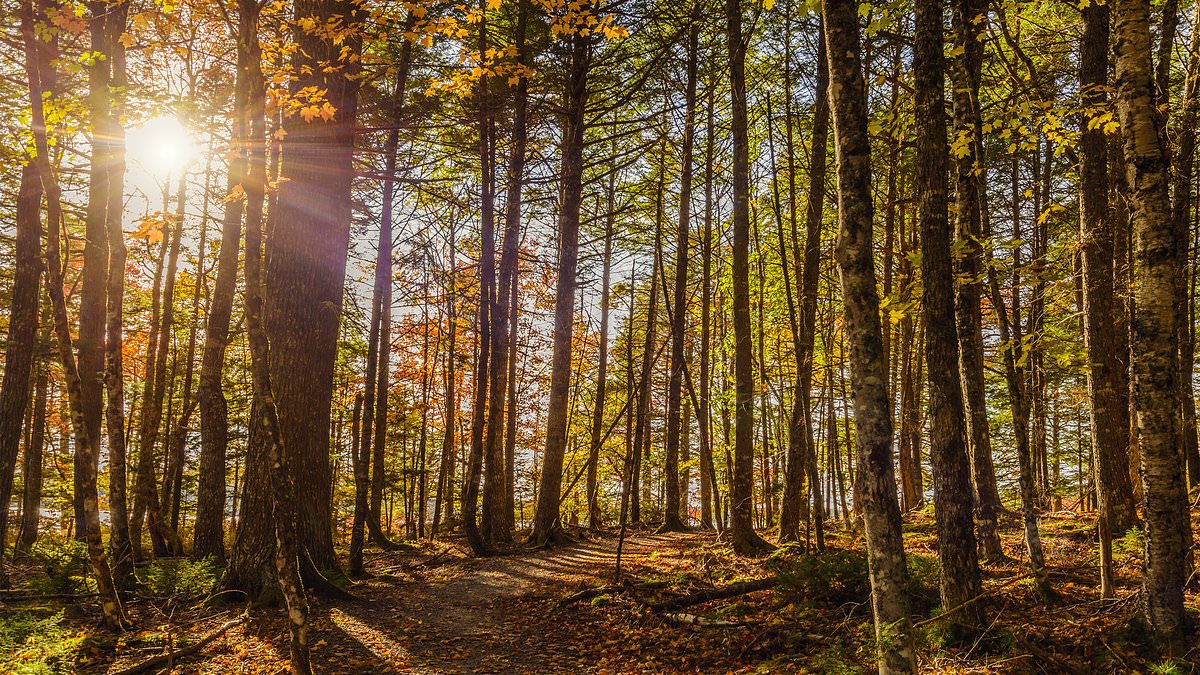
Nova Scotia has recently come under scrutiny as wildfire restrictions spark debate about personal liberty and public safety. A Canadian Armed Forces veteran, Jeff Evely, has drawn attention by deliberately defying the province’s new wildfire regulations, which impose sweeping bans on outdoor activities in forests.
What Led to the $28,872 Fine?
Evely, a former member of the Royal Canadian Air Force, openly defied the wildfire ban — which includes activities like hiking, camping, and dog walking — to challenge the provincial government’s ruling in court. Determined to test the system, Evely visited a government office in Coxheath, informed officials of his intentions, and proceeded to enter the restricted forest. His actions were captured on video, which has since gone viral with thousands of shares and supportive comments across social media platforms.
The fine, amounting to $28,872, includes a victim surcharge and taxes. Despite the heavy penalty, Evely’s protest has ignited a conversation about the balance between public safety and personal freedoms, especially in light of increasing wildfire threats due to climate change.
The Controversy Around Nova Scotia’s Fire Ban
This summer, Nova Scotia implemented some of the strictest wildfire safety measures in Canada. The restrictions include a complete ban on accessing forested areas, set to remain in place until October 15 or until conditions improve. Open fires and other outdoor activities are also prohibited to mitigate wildfire risks during a prolonged drought season.
While Premier Tim Houston and forestry experts defend the measures as necessary for protecting lives and property, critics, including Evely, argue that they are overly broad and punish individuals in areas without any active fire risk. According to Scott Tingley, the province’s forest protection manager, an overwhelming 97% of wildfires in Nova Scotia are caused by human activities, further justifying strict controls.
A Debate on Public Safety vs. Personal Freedom
The wildfire ban underscores broader societal questions about how far governments can and should restrict personal freedoms for the sake of public safety. Evely views his protest as an opportunity to set a legal precedent and ensure such laws are subject to judicial review. His lawyer, Marty Moore, asserts that the ban is “arbitrary and irrational,” pointing out that hiking through the woods does not inherently pose a wildfire risk and might even help by detecting early signs of smoke or suspicious activity.
Critics have also questioned whether province-wide restrictions are the best solution, with some suggesting a more targeted approach that closes specific high-risk areas rather than penalizing residents far from active fires.
Products for Outdoor Enthusiasts
If you’re an outdoor enthusiast looking to reconnect with nature responsibly, check out the Patagonia Nano Puff Jacket. Designed for all-weather conditions, it’s perfect for cool hikes and outdoor adventures while complying with safety restrictions.
What’s Next for Jeff Evely?
This isn’t Evely’s first brush with the law over fire safety regulations; last year, he sought a judicial review for a similar restriction. However, his case was thrown out as he had not been fined at the time. Now, with the substantial penalty in hand, Evely and his legal team are better positioned to bring the case to court. Legal experts note the potential of this case to challenge the Nova Scotia Forests Act and its sweeping powers during emergencies.
The debate continues to divide Canadians. While some support Evely’s defiance as an act of resistance against excessive governance, others emphasize the importance of taking wildfire prevention seriously amid worsening climate conditions. Either way, the outcome of this legal battle could have lasting implications for the balance between safety regulations and personal freedoms.
What are your thoughts on Nova Scotia’s wildfire bans? Share your opinion and join the conversation about balancing environmental safety with individual rights.






